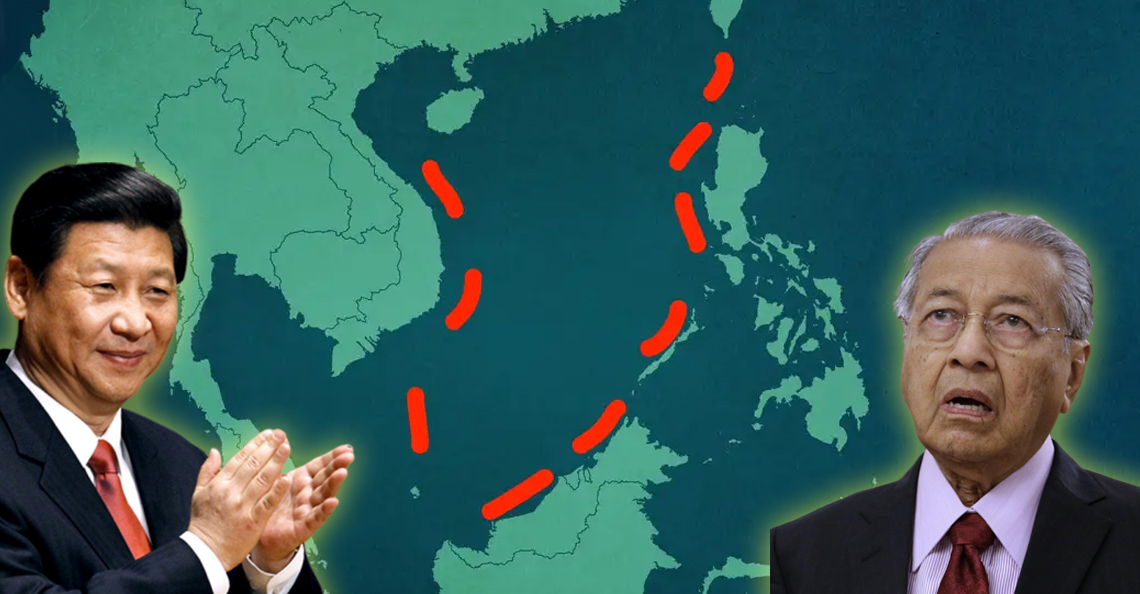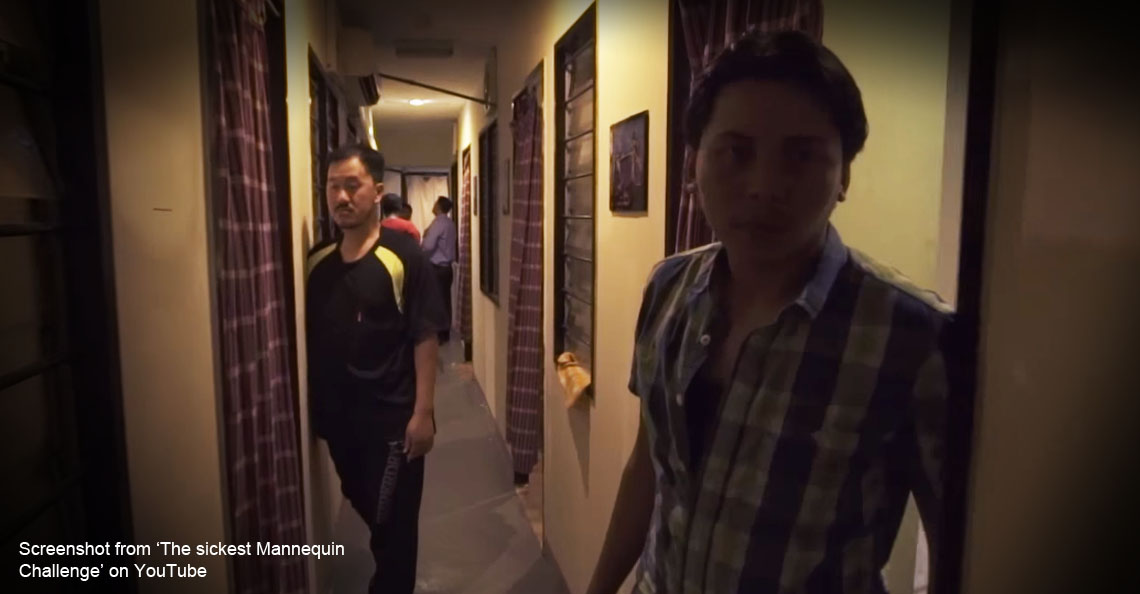3 Bangladeshi Workers’ Deaths Show Us What Migrant Lives Are Like In Malaysia
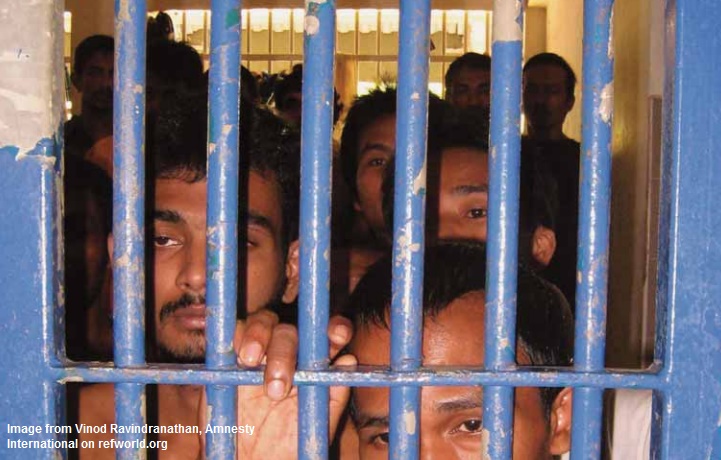
- 401Shares
- Facebook394
- Twitter1
When 3 construction workers of MRT Corp were killed in a concrete span collapse, the following sequence of events unfurled briskly. What was done to deliver justice to 3 lives lost? CILISOS follows the aftermath of their dismaying deaths.
The Malaysian Dream
Malaysia is “Heaven on Earth” for foreign workers… at least that’s how Human Resources Minister, Datuk Richard Riot Jaem saw fit to describe the country. He said it must be so, “otherwise, they won’t be coming here in droves, legally or illegally.”
Orly? Hmmm… But Malaysia has been ranked among the worst places in the world to work in, by the International Trade Union Confederation. Plus, Nepal’s English daily, Republica, touted Malaysia as one of the “deadliest destinations” for work, revealing that 253 Nepali workers died here in 2012.
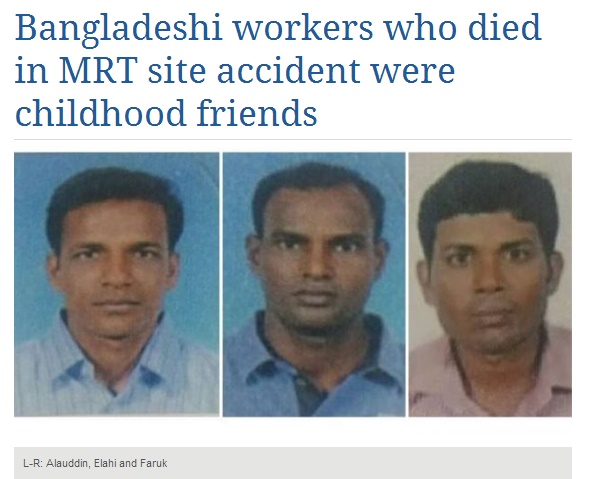
To Alauddin Mollik, Elahi Hossain and Faruk Khan, though, Malaysia was certainly supposed to be the side of the fence where greener grass grew. “As they couldn’t make a good living by working in the country, they had decided to go abroad in search of a better life,” Milon, Elahi’s elder brother, told The Daily Star, Bangladesh. They had arrived on Malaysian shores in May 2014, and as life would have it, all 3 found jobs with MRT Corp.
Then on 18th August, their Malaysian Dream came to an end when the 3 men perished at work. A 650-tonne concrete span collapsed at their worksite near Kota Damansara. Hours after a frantic search operation, their bodies were recovered and taken to Sungai Buloh Hospital for post-mortems.
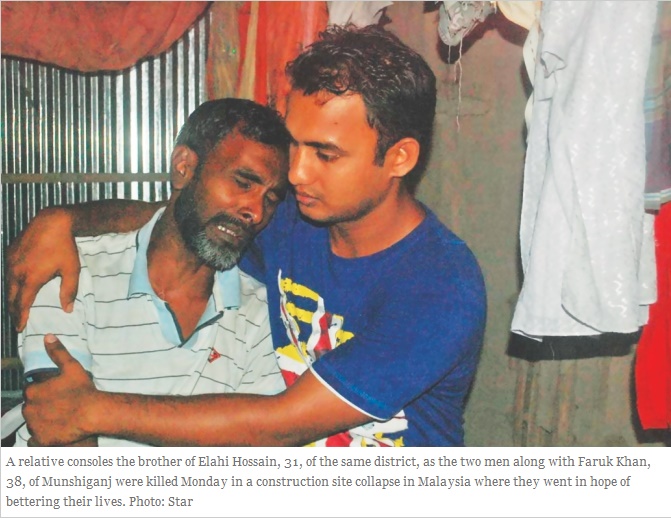
Elahi, 27, the youngest of 4 sons, was single – however his friend, Alauddin, 34, was married and has left behind a widow, with 3 very young children back in Bangladesh
“My husband will not hear our little daughter, Ashfa, speak the word Baba (father). I can’t see my future. How will I take care of my daughter?” – Shampa Khatun (Alauddin’s wife), The Daily Star
That same week, in the solemn wee hours of Thursday (21st August) morning, their remains were flown back to their home soil. When CILISOS spoke to a representative from the Bangladesh Embassy, we were informed that MRT Corp bore the cost to send their bodies back. Since all 3 came to Malaysia legally as workers, the procedure would cost the company around RM3,500 each, while the Embassy helped out with the documentation.
Trading a loved one for RM25,000
In compensation, the victims’ families are to be given RM25,000 each. Now, all that’s left is to wait for the Bangladesh Embassy to verify the beneficiaries. Although, what are the beneficiaries ‘benefiting’ from RM25,000? Do we know how much it cost the families to send their loved ones to Malaysia?
For starters, each family had to come up with Tk 400,000 (RM16,600) to send them here, according to The Daily Star and thereport24.com. Which means that in balance, they will be receiving RM8,400. RM8,400 for the loss of a source of income, but more importantly, loss of a loved one? And what of Alauddin’s widow and their little tykes? How long will RM8,400 last her with 3 mouths to feed?
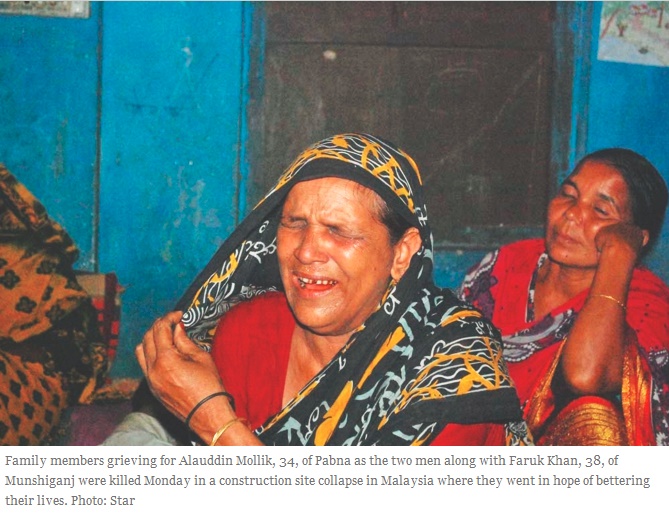
Speaking of a source of income, you would think that the Minimum Wages Order increase signals good news for workers. At RM900 monthly (Peninsula Malaysia) and RM800 monthly (Sabah and Sarawak), it sounds like progress…. But here comes the plot twist! The Government is making workers pay for levies now instead of employers. Immigration levies are a form of tax which range from RM410 to RM1,850, depending on the different sectors where foreign workers are employed. HUH, but that’s contradictory, coz employers are allowed to deduct workers’ wages to cover the levy. Oh c’mon, seriously?!
So, why did the families have to fork out RM16,600, again? Well, to give you a rough idea, here’s how it goes down for some Bangladeshi workers… The Star released findings that they pay a syndicate between RM10,000 and RM12,000 each to get them in. But Alauddin, Elahi and Faruk were more (can we say) fortunate, in the sense that they at least didn’t have to come up with Tk 2 million (approximately RM82,800) like 21-year-old Husain did to get here.
A CEO who took the high road and resigned
After the incident, MRT Corp CEO, Datuk Wira Azhar Abdul Hamid’s next step took everyone by surprise – he resigned. The Rakyat Post recorded that netizens took 2 sides of the fence.
Azhar received praise:
joking around saying MRT chief should resign . He actually did. wow. Should be commended for that. #respect
— Mo Kumar (@Maweenkumar) August 19, 2014
As well as condemnation: “Come on. Own the problem. Fix it not leave it for other to clean up the mess.”– Sim Yun Young.
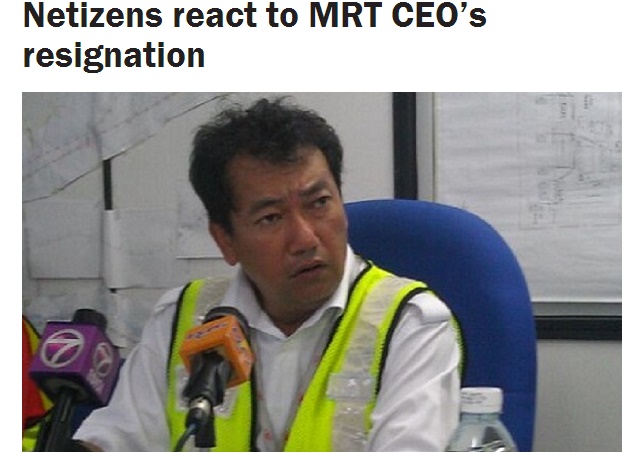
One thing is sure – Azhar’s decision to resign is “unprecedented” in Malaysian history. Despite his exit, he pledged to see through this case. “I was told that some security measures were not followed by sub-contractors, and if that is really the case, I will make sure MRT Corp never works with them again,” The Star reported him saying, adding that despite his cajoling on work safety, incidents (like this and this) kept cropping up.
Work incidents kept cropping up…?
Uhmmm, if they kept cropping up as he claimed, then we wonder why more serious action had not been taken before? And if serious action had indeed been enforced sooner, could it have prevented the deaths of Alauddin, Elahi and Faruk?
Not really a ‘Dream’ at all
In all honesty, is the life of a migrant worker something you could call ‘the Malaysian Dream’? An emphatic article of their plight on The Sun Daily, raises some sticky issues that the public would rather close their eyes to.
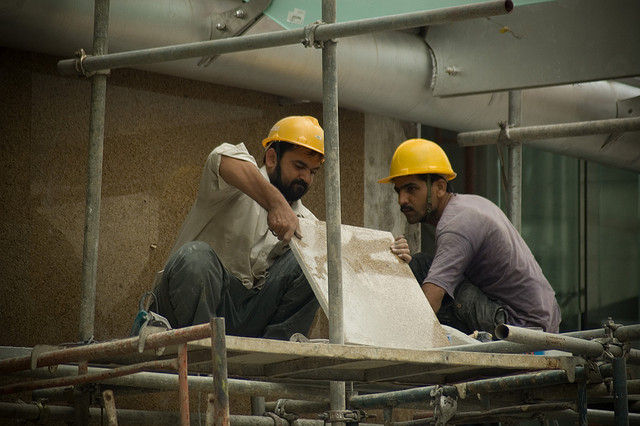
We’ve talked about minimum wage, now what about their healthcare rights? You would have seen the FOMEMA (Foreign Workers Medical Examination Monitoring Agency) stickers at your GPs clinic, yes? Employers must get their workers annually examined with GPs and it is illegal to recover the doctor’s bill by deducting it from the worker’s wages. Yet, according to Aliran, it is believed that proper examinations are not always conducted. Aliran suggested that government hospitals and clinics could undertake this to halt corruption against workers.
And do we even need to mention their living conditions? When an Asian parliamentary conference on labour migration gathered to discuss migrant worker issues, Nepal MP, Zakir Hussain announced that one Nepali death occured at detention camps every week, due to starvation and limited access to healthcare. “What I don’t understand is how Malaysia has adequate laws on migrant labour but practises low standards of human rights,” he mentioned.
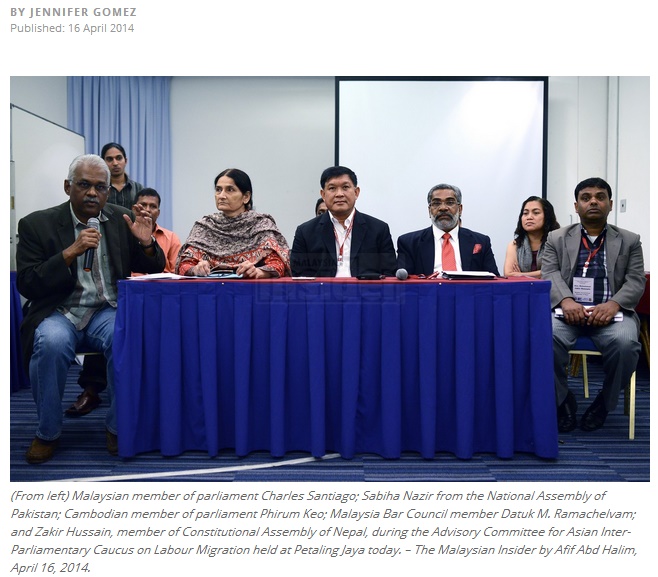
Because of poor wages and long working hours, migrant workers continue to live in poverty. “In some instances, they are worse off than they were before in their country of origin,” asserted Pakistan MP, Sabiha Nazir. Well, that’s sad!
The conference recommended that Putrajaya install a government-to-government approach in worker recruitment to minimise cost and exploitation by outsourcing. Especially outsourcing by labour brokers, who, as Klang MP, Charles Santiago, put it, manipulate migrant workers.
Workers striking back
Backing the evidence that migrant workers’ lives are not a bucket of rainbows, is the recent riot at JCY International, Johor. Some 1,500 Nepali workers struck back at their employers after their colleague died from alleged company negligence, according to The Star. Additionally, they were unhappy with their cramped living conditions and unfair working conditions, including limited access to healthcare.
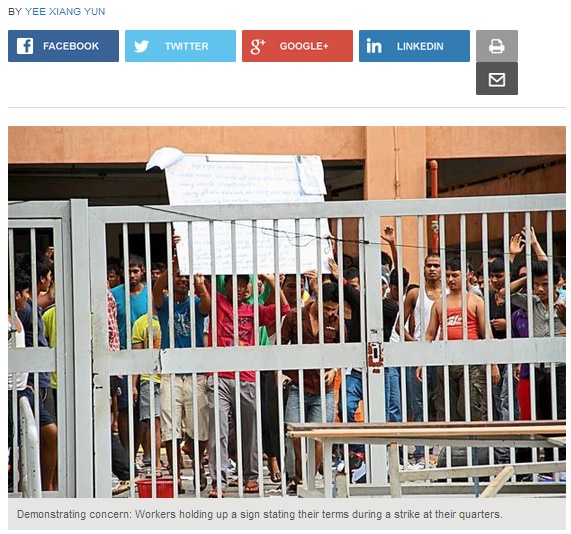
Seems like Malaysia isn’t the only SEA country with migrant worker issues as Singapore saw its own riot of hundreds of South Asian workers. Except, the difference is that Singapore is willing to trade in slower growth for social responsibility. It aims to keep down the number of foreigners working in the city-state because it doesn’t want to end up like Dubai.
But they are people too
Many have compared Malaysia’s treatment of migrant workers to modern day slavery. There are constant reports of workers being treated with violence, starved, even emotionally abused.
For illegal immigrants who are caught by the authorities, detention centres are their next stop. It breaks the heart to see how they are treated in detention centres. Especially the children… please, not the children! Amnesty International brings their deplorable conditions to light – there are problems of overcrowding, poor sanitation, irregular access to treatment and overall, detention centres fall short of acceptable international standards. You can read their full report here.
Children under the age of 5 are housed with women, which the organisation describes as “a large cage” with no activities for the children. The conditions children are detained in can cause serious harm to their physical, emotional and psychological well-being. In some cases, they are separated from their parents as parents are deported.
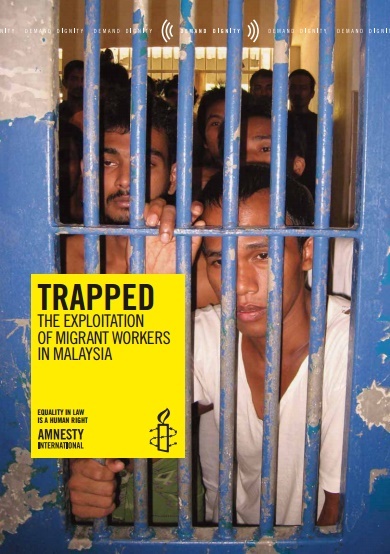
In fact, Malaysia has been downgraded by a US annual human trafficking report to the same category as Zimbabwe, North Korea and Saudi Arabia! The overwhelming majority of trafficking victims here are 2 million documented and 1.9 million undocumented foreign workers.
Back to the parliamentary conference, Philippines representative, Mariquit Melgar, argued that foreign workers have contributed to the development and economy of Malaysia. “They are not terrorists, they are not robbers, they just want better treatment and fair wages, is that too much to ask for?” she said.
Good question, Malaysia… is it too much to ask for?
- 401Shares
- Facebook394
- Twitter1

